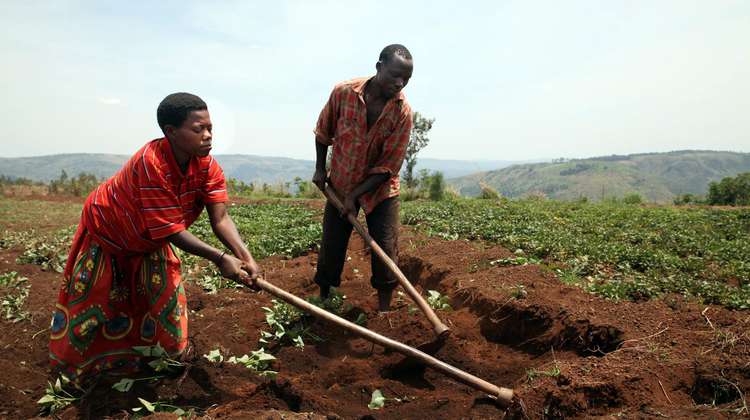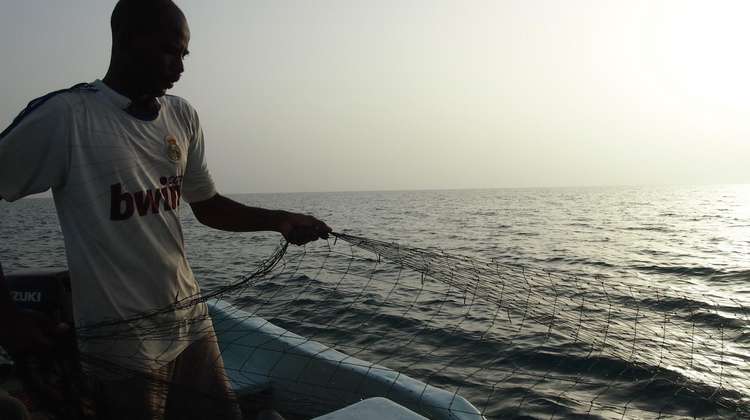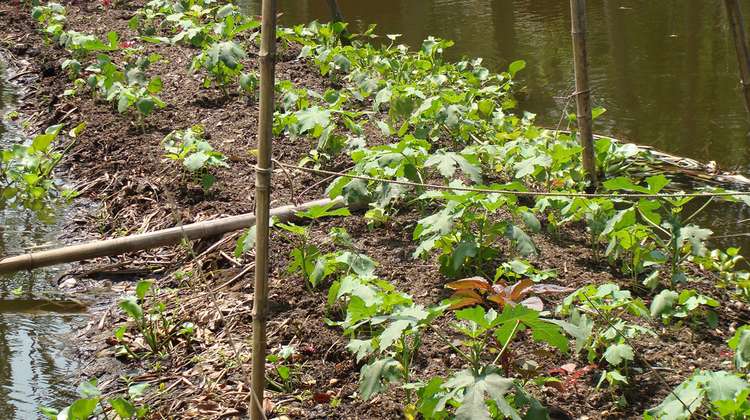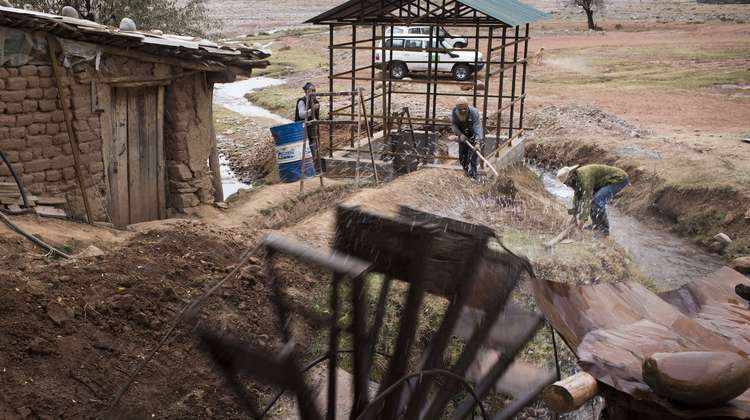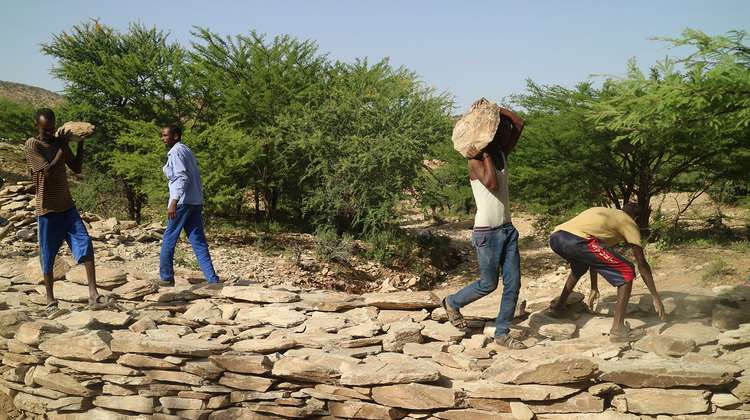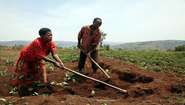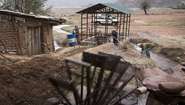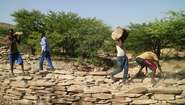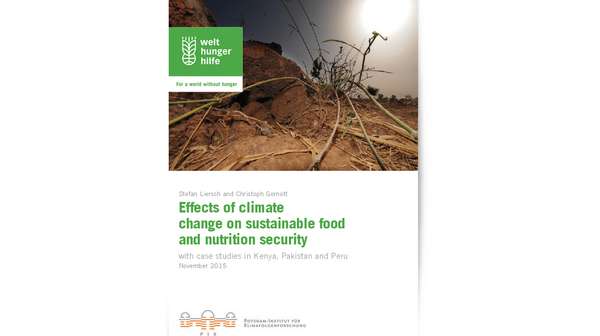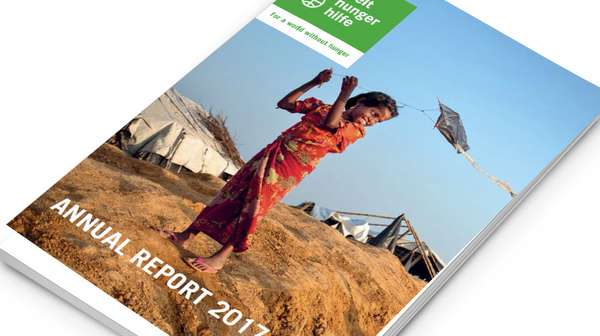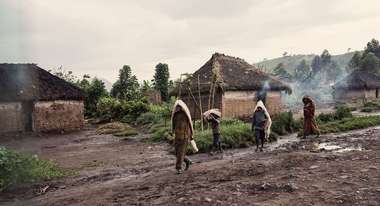A study commissioned by Welthungerhilfe shows how dramatically climate change is already affecting the availability and use of food today.
Climate Change: Industrialised Countries Must Act
Marlehn Thieme, President of Welthungerhilfe, urges: “Climate change is a question of justice. We must actively help reduce the growing inequality within societies and between the countries of the Global North and South.”
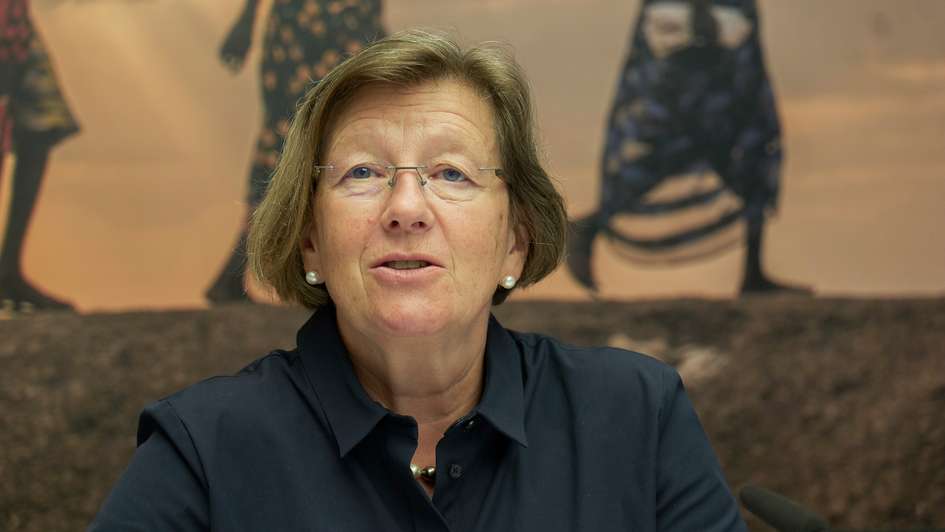
The number of people going hungry throughout the world has risen again and is now at 821 million. In 2017, climate events robbed some 39 million people of their food security, leaving them without sufficient nutrition (Global Report on Food Crises 2018). At Welthungerhilfe, our work is being increasingly impacted by the catastrophic connection between climate change and global nutrition. Cyclone Idai hit Mozambique, Malawi, and Zimbabwe in March 2019, destroying not only houses, schools, and roads but also fields and with them the harvest for the coming months. This took the nutrition situation from bad to worse. We have seen the vicious cycle of droughts, deforestation, and flooding as well as the resulting under- and malnourishment repeated in other countries, too.

The affected countries need financial and logistical support from the countries that are primarily responsible for climate change.
Marlehn Thieme President of WelthungerhilfeScientists expect harvest yields to plummet, drought areas to expand, and fish populations to decline in the coming decades – all due to rising global temperatures. This means that preventative measures will play an important role. Early-warning systems, weather insurance, drought-resistant seed material, and innovative cultivation methods can make societies more resilient. However, the affected countries cannot deal with these challenges on their own. They need financial and logistical support from the countries that are primarily responsible for climate change.
The Poorest People Suffer From Problems Caused by Rich Countries
Globally, the effects of climate change have the greatest impact on the populations that are the least responsible for them. More to the point: The poorest people in the Global South are bearing most of a burden created by the rich countries of the North. They have few resources to prevent or address emergencies. This makes climate change today above all a question of justice. We must actively help reduce the growing inequality within societies and between the countries of the Global North and South. Climate justice can only work if fundamental shifts are actively undertaken in all areas, including politics and business. Making these changes will require courage.
For the governments of our partner countries, this means that processes such as the exploitation of natural resources must give proper consideration to the needs of the local populations, always taking a human rights–based approach. The cultivation of energy crops for industrialised countries cannot be allowed to infringe on the human right to food or to cause people to be displaced.
Germany Is a “Land Importer”
Germany is currently one of the top ten “land importing” countries in the world. National consumption requires the cultivation of 22 million hectares of farmland, but only twelve million are currently covered through domestic production. The rest is sourced from abroad, for example with feed coming from Argentina or palm oil from Malaysia and Papua New Guinea. These consumption practices exact a high price, occupying land that could otherwise be used to provide for the local population. We cannot let hunger be the consequence of our consumption and our politics.
We Need Courage and Will – and Action
Supporting and strengthening the people most affected by climate change requires not only the right framework conditions but also – crucially – money.
The 2018 Annual Report showed how Welthungerhilfe has shored up resilience to climate change through its projects.
The Coalition Agreement is unequivocal on this point: Expenditure for defence and development cooperation should grow proportionately. However, current figures reveal a different trend. While a cabinet decision has funding for the Federal Ministry of Economic Cooperation and Development (BMZ) stagnating next year, defence spending is budgeted to grow by approximately EUR 2 billion in 2020. This is in clear opposition to the letter and spirit of the Coalition Agreement. We urge the Federal government to keep the explicit commitment it made.
Industrialised countries have the resources and opportunities to actively fight climate change and sustainably provide the world’s growing population with healthy food. A world without hunger by 2030 is possible, but we need political action now.





